Internet privacy is a growing concern amongst U.S. citizens due to the lack of control over how businesses collect, store, use and share their data online. While there were no established data privacy laws in the past, many states have taken up the challenge to enact laws protecting the online privacy of Americans. As the government works towards establishing data protection laws for internet users, individuals can also take proactive security measures to remain private on the internet.
There are more than 313 million active internet users in the United States, and that number keeps growing. The rapid growth of internet users has led to an increase in the volume of personal information being shared and collected every day with various data collection tools. As the data volume grew, so did the concerns for internet privacy and security.
In the early days of the internet, everyday citizens didn’t have reasons to be concerned about their privacy and security. The internet was primarily for scientists and researchers who needed a way to communicate with one another and quickly share relevant data in the process. However, with the increased adoption of online services/products, the internet has now widened to accommodate all kinds of activities.
Companies now utilize a broad array of data collection tools to gather information for their targeted marketing strategies. Cybercriminals also use the internet to collect data for perpetrating different types of attacks ranging from doxing, identity theft, fraud and malware. Also, the government uses the internet to carry out surveillance operations on its citizens whether they like it or not.

All these exploitations are what’s behind the growing concern over privacy and security among internet users. Many Americans believe that the government, corporations and other third parties are constantly tracking and monitoring their online activities. This is why they’re calling for the government to establish robust privacy laws and policies capable of safeguarding the interests of internet users.
In 1997, then–Vice President AI Gore established the Information Infrastructure Task Force (or IITF), operating under the Clinton administration.
According to the task force, internet users have the right and voice to determine how their personal information should be acquired, shared or used. But even with those rules, online privacy has still become a continual concern for internet users.
This is why many Americans try to protect their personal information over the internet by using antivirus software, turning off every possible tracking channel, using strong passwords, more robust privacy settings and even checking a website’s security before using it.
This article will focus on topics surrounding internet privacy, such as what it is, why it is crucial, and the privacy laws available for internet users in the U.S. Keep reading as we explore these topics in full.
Why Is Internet Privacy an Issue in the US?
There are many reasons for the increased concern over internet privacy in the United States. Some of the notable factors include:
Increased Tracking and Surveillance

Many U.S. citizens have become worried over the incessant and increased tracking by the government and businesses. Apart from tracking and monitoring the citizens offline through surveillance tools such as CCTV cameras, there has been an increase in online tracking over the years. It’s now hard to exist in the U.S. without the government and companies collecting the personal data of citizens and other residents.
The initial purpose of data collection strategies was to offer data-driven products to save money and time for the users. The intentions were acceptable initially, but Americans have now come to believe that the risks outweigh the advantages. Nowadays, it’s not only the companies and the government who’re interested in the data, but even hackers and cybercriminals are always on the lookout for databases to exploit.
When it comes to government access and involvement in the online activities of U.S. nationals, many IT professionals don’t agree to it. These users argue that the government shouldn’t reserve the right to access encrypted information systems. This is why Americans do anything possible to hide their digital footprints from the government.
Lack of Clarity over Data Usage
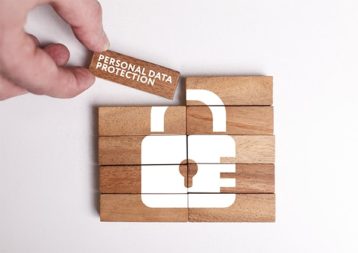
Another reason for internet privacy concerns is that the citizens are not fully aware of how their data is being used. Many Americans are concerned about what the companies and government are doing with their data. The most troubling aspect is that the citizens can’t control how these entities are utilizing their data.
Generally, Americans are worried about those who collect the data, how they use their personal information and how they store them. The concern is that these entities may not respect the citizens’ privacy in their data handling processes.
An emerging issue is that internet service providers (ISPs) collect and sell their users’ data to digital marketers. This practice has been going on since 2017 in the U.S., and many people may not know about it. ISPs not only sell the data they collect but also share it with the government for surveillance purposes.
Also, AT&T used to charge an extra $29 monthly fee for customers who opted out of having their information used for targeted advertising.
Data Security Is Not Prioritized

Many Americans believe that their data is less secured in this era than it was in decades past. There have been cases of data breaches all over the internet, and those cases are increasing in size and scope every year.
So far in 2021, there have been hundreds of breaches leading to the exposure of at least 3.2 billion records as of April. These attacks included cyberattacks, ransomware, data breaches and other miscellaneous incidents.
In a survey conducted in 2019, 80% of U.S. internet users agreed that their data is not adequately protected against hackers. One of their privacy concerns is that mobile users often need to share sensitive personal information such as social security numbers and credit card details. Even though this information is required to complete some transactions online, the companies collecting them are not protecting them.
This is the leading cause of increased financial losses and identity theft across the U.S.
Increased Data Sharing Services Online
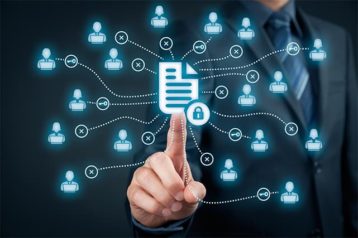
There has been an increase in the number of social apps circulating on the internet. Many people who use these apps share excess data without considering the consequences.
Some people go as far as sharing their residential address, workplace and employment information, and even their latest achievements.
This is important:
While internet privacy ensures that such data should be respected and protected, individuals should also be careful on the internet. For instance, almost every app today requires users to agree to their privacy policy before accessing the services. Many people who share excess personal information online don’t even spend time reading the privacy policy from the companies they use online.
Any regular user will attest that many websites and services ask for approval of their privacy policy before doing anything on their sites. Many people usually click “Agree” without spending time on it. With such a hasty approval, you might have unknowingly granted a company or even a hacker permissions to exploit your personal information.
Sometimes, even the tracking cookies need to be enabled through your approval. But many people often enable these cookies just to access their target content without minding the consequences. While we can’t blame anyone for trying to complete an important assignment or make a quick purchase, it’s still better to be careful before agreeing to anything on the internet.
Unclear Privacy Laws

According to a Pew Research Center survey conducted to gauge Americans’ concern over internet privacy, many people don’t understand the privacy laws in place to protect their online activities. In the survey, 63% of Americans stated that they had little or zero understanding of the privacy laws.
These groups said that the laws are not clear to them, and they don’t understand how they protect their online privacy. In the same research, 3% of Americans said they know the privacy laws a lot, while 33% said they have a certain level of understanding.
Note:
Many of the privacy laws available to ensure internet privacy were designed to give consumers the right to approve the collection, storage and usage of their personal information. This is why online websites and apps often ask their users to “Agree” to their privacy policies before using their services.
Unfortunately, while many U.S. citizens and residents on the internet agree to see these notifications, their reactions to the privacy policies are not encouraging. In the Pew Research Center study, 97% of Americans agreed to have seen these privacy policies. Amongst these groups, only 9% to 13% agreed that they read the policies.
And while 38% of U.S. nationals said they sometimes read them, 36% admitted they don’t read any company’s privacy policy but agree immediately. However, only 8% to 33% of all adults stated that they clearly understood privacy policies.
What Is Internet Privacy and Why Is It Important?

Internet privacy represents the level of protection or privacy that every internet user has while using the internet. It encompasses the online security in place to keep users’ communications, personal data, preferences and financial data safe from exploitation.
Internet privacy covers all the activities involved in storing personal data, using people’s data or sharing it with third parties. Every internet user has the right to be protected over the web. Therefore, online security can also be seen as the mandate to keep users’ information safe when they share it online.
This is important:
There are two types of personal data that are important in the pursuant of privacy online. The first is the personally identifiable information (or PII), while the second is the non-personally identifiable information. While PII is concerned about all the information that directly identifies an individual, non-PII centers on that information that doesn’t identify an individual directly.
Some of the personal information categorized under PII include a physical address, GPS tracking data, age and other details. But non-PII could be a user’s behavior while using a particular website or service. So, whether an internet user shares PII or non-PII online, internet privacy demands that such information be kept private and not exploited in any way.
Importance of Internet Privacy
There’re many reasons to ensure internet privacy. But before we proceed, you should bear in mind that internet privacy is a two-way responsibility for both the authorities and the internet users.
Internet privacy helps individuals to mitigate the risks associated with using the internet. Some of the risks include:
- Identity theft
- Phishing scams
- Malware and ransomware attacks
- Doxing
- Spyware infiltration attacks
Without internet privacy policies and rules, many individuals will always be vulnerable to the manipulations of cybercriminals. And without proper privacy policies in place, many businesses and third parties will exploit internet users.
Protecting Digital Space
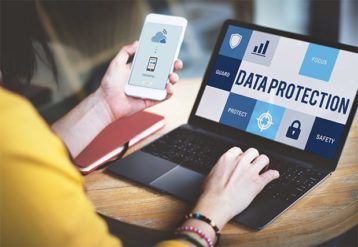
Internet privacy ensures that an individual’s digital life remains private. This is very important because it’ll enable an individual to protect their digital space and everything shared within the space. You can keep your personal information away from hackers or exploitative third parties.
Having a private digital life also means that no one can trace your digital footprint. But that won’t happen if you only depend on privacy policies. You also have to put some measures in place to protect yourself online.
First, make sure that you reduce the amount of sensitive information that can be accessed from your space. Don’t put your credit card details everywhere or share your medical records and social security number easily. Also, keep your online accounts to the barest minimum possible to avoid oversharing personal information.
If you have smaller digital footmarks, it’ll be easier to protect your personal information.
Moreover, if you’re sensitive to the service providers you use, it’ll be easy to identify those without much regard to the user’s privacy. Once you do, you can leave them for more privacy-savvy service providers.
Tracking by Digital Marketers

Without the growing attention to internet privacy, digital marketers will upturn the internet until everyone’s life becomes an open book. Digital marketers track individuals on the internet through their online habits in a bid to profile them. The simplest way they do it is through the cookies embedded in the websites you visit online.
Tracking cookies helps digital marketers to gather and analyze your browsing history. This is why you should delete cookies from your devices after every browsing session. Those cookies track you and provide your digital footprints to digital marketers who’ll use them to create customized ads for you. While the personalized shopping experience seems to be time-saving and effective, excessive ads can be annoying and distracting as well.
The best solution to this apart from privacy laws is to opt for privacy-respecting web browsers such as Brave, Firefox and others that don’t log users’ browsing history.
If you prefer larger platforms such as Google Chrome, be ready for web tracking. These companies track and monitor your browsing activities as part of their marketing strategies. You may not know this, but Google has many ways of watching you and your emails, searches and other information.
Government Control

Without maintaining a more private digital life, government surveillance would be uncontrollable. Law enforcement agencies constantly monitor citizens’ activities to enact control or curb criminal activities as they often claim.
One of the extreme cases of a government surveillance system is Skynet, a video surveillance system operating in China. Skynet has 416 million CCTV cameras all over the country monitoring the activities of 1.4 billion citizens. In such settings, citizens can’t have any privacy in their lives as everything they do is being monitored by the government. Even though the Chinese government claims Skynet aims to curb criminal activities, it’s still an invasion of people’s privacy.
Other countries may not have systems as large as Skynet. There are still many ways the government tracks citizens, especially over the internet. For instance, the U.S. Senate refused a proposal that would require the government to get a warrant before investigating the digital history of the citizens. This means U.S. authorities can essentially explore the digital lives of the citizens if they deem their activities a threat to national security.
In such a situation, it’s left for the citizens to protect their privacy over the internet by minimizing the quantity of data shared online. When the government is involved, privacy laws and policies may not apply. So, the individuals have to pick up after themselves to avoid leaving crumbs for the authorities to find.
Cybercrime

Without adequate internet privacy, cybercrimes will hit the roof. Even with all the present measures in place both legally and individually, criminals still perpetrate blood-curling crimes on the internet. Individuals who are not keen on internet privacy best practices often fall victim to diverse exploitations and exposures. This is why internet users must protect themselves against crimes such as:
- Identity theft
- Financial fraud
- Spam mails
- Online scams
- Cyberstalking or bullying, etc.
So, internet users must follow strict guidelines or privacy measures while using the internet to avoid unnecessary exploitation by hackers. Some of these measures include storing little information in their online accounts, using data encryption tools to protect their personal information, among other best practices.
Pro Tip:
It’s very important to use robust VPNs while browsing. This could mask your IP address from spying and tracking. Also, using two-factor/multi-factor authentication and strong passwords for online accounts will go far in protecting your privacy.
Do We Have a Right to Privacy on the Internet?
With all the concerns and issues surrounding internet privacy in the U.S., the question remains whether privacy protection laws are in place to protect citizens’ online activities. The answer to this question is somehow complicated.
In the early years, there were many laws protecting individuals’ privacy. But when it comes to internet privacy, privacy laws had not been established then. However, some federal and state laws in place partly ensured online privacy until recently, when many U.S. states started pursuing their own data privacy laws.
Some of the earlier laws applicable to online privacy include:
Federal Trade Commission Act of 1914
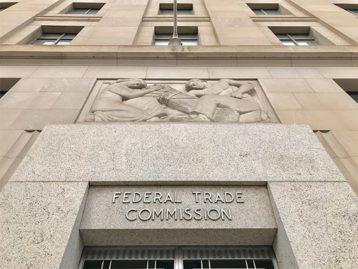
This law is responsible for checking unfair commercial practices. The U.S. Federal Trade Commission (FTC) regulates consumers’ privacy and facilitates legal actions against companies that exploit them.
Some of the violations under the close watch of the 1914 FTC Act are non-compliance to privacy policies posted on their sites and the inability to protect users’ personal information.
Computer Fraud and Abuse Act of 1986 (CFAA)

This law concentrates on protecting citizens against computer exploitations. It covers all acts of unauthorized access to a computer for harmful activities such as defrauding valuable assets, obtaining private/sensitive information, transmitting harmful items, or even trafficking computer passwords.
As of the time of writing this article, the Computer Fraud and Abuse law has passed through six amendments.
Electronic Communications Privacy Act of 1986
The Electronic Communications Privacy Act (ECPA) protects communications processes and patterns. It ensures that all wire communications, electronic communications, and oral communications remain secure against third-party exploits. It protects citizens against unauthorized access, interception, disclosure or even use of electronic communications.
Children’s Online Privacy Protection Act of 1998
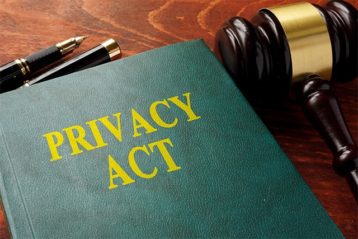
The Children’s Online Privacy Protection Act (or COPPA) of 1998 protects minors from exposure and exploitation online. It requires that online service providers and websites get “verifiable parental consent” before collecting, using or disclosing any personal information of a minor under 13 years old.
COPPA demands that websites post an online privacy policy and collect minors’ personal information only when necessary. Also, the law mandates websites to employ adequate security measures to protect the data they collect from minors.
Gramm-Leach Bliley Act of 1999
The Gramm-Leach Bliley Act protects U.S. residents against the exploitation of their personal information collected and stored by financial bodies. It regulates the data collection processes, data usage and disclosure of such personal information. The law mandates financial institutions to give adequate notices to their customers and also requires them to establish security programs for written information.
Fair and Accurate Credit Transactions Act of 2003
Here is a law protecting U.S. nationals against identity theft. The Fair and Accurate Credit Transactions Act (or FACTA) mandates creditors and financial institutions to create written programs to prevent such incidents.
Controlling the Assault of Non-Solicited Pornography and Marketing Act of 2003
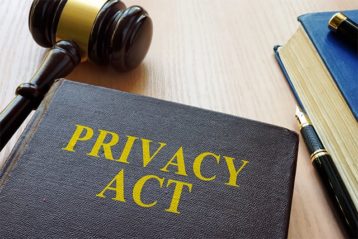
This is the law protecting American nationals from unsolicited commercial emails. It also regulates the nefarious act of some marketers who send emails using deceptive header information and subject lines in the bid to attract customers.
The Controlling the Assault of Non-Solicited Pornography and Marketing (or CAN-SPAM) Act requires that email senders disclose some information that will tell the reader what it’s about. Also, it mandates senders to provide an “opt-out mechanism” to allow the recipients to decide what they want. This law also is so strict that it has civil and criminal penalties against those who violate it.
Note:
The above industry-focused laws are federal and state laws protecting U.S. citizens from exploitation by institutions that collect their personal information. However, there were no solid laws for handling privacy on the internet. The internet is somehow deregulated, and social media and tech companies are taking advantage of that.
But in recent years, many states in the U.S. have started to take notice of the emerging exposures and exploitations on the internet. As a result, they’re establishing state-based privacy laws to protect their citizens.
Some of the new state-level privacy laws include:
California Consumer Privacy Act of 2018
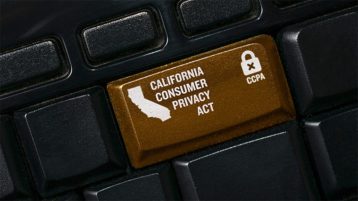
This is a law that protects consumer privacy on the internet. The California Consumer Privacy Act (CCPA) is comprehensive and focuses mainly on how companies handle consumer data once collected. The law gives the consumers a say over how businesses use their data. It prohibits businesses from selling their customers’ personal information shared with them without a web notice, plus a choice to opt-out of the agreement.
Another important aspect is that the law offers the “right to delete” personal information if a consumer makes such a request to a company. Consumers can also sue a business if a data breach compromised their personal information. CCPA also gave a comprehensive definition of what personal information means to prevent malicious exploitation in a very thorough manner.
The law also mandates companies consistently implement and maintain adequate security procedures to protect their consumers’ personal information.
According to CCPA, such information includes email, geolocation, employee data, browsing history, biometric data and other forms of information. CCPA is one of the laws that confer internet privacy rights to U.S. nationals in California.
New York Privacy Act
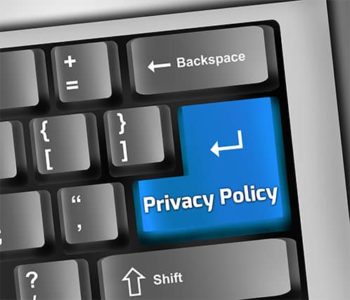
As of the time of writing, the proposed New York Senate Bill S5642 hasn’t been enacted yet, but it is mostly based on the CCPA. It contains a definition of what personal information is and also added some crucial identifiers such as email address, biometric and network information. There is also the right to delete and request personal information.
A unique aspect of the New York Privacy Act is that it confers the right of consumers to sue for any violation, regardless of the company’s revenue level. Many people view this aspect as being strict, but it protects the online privacy of New Yorkers.
Note:
However, the New York law mandates that businesses share the categories of information they share with interested third parties. And if the consumers demand copies of such information, companies are to provide it.
The proposed law imposes “data fiduciary” on businesses so they’ll be legally accountable for consumers’ data in their custody. That way, consumers can sue them in data breach cases. Also, the law confers the right for consumers to “correct inaccurate information” held by businesses. This is a step farther from other state laws available in the U.S.
North Dakota
North Dakota’s House Bill 1485 was passed in April 2019. The law mandates website owners to seek the consent and approval of internet users before passing their personal information to any third party. So, consumers would have to protect their privacy by limiting the data they share and how they allow tracking cookies to monitor browsing activities.
It mainly prohibits the disclosure of personal information unless the user has given their written consent to do so.
According to the legislation, “personal information” can include names, addresses, IP addresses, account names, biometric information, geolocation data, internet traffic data and browsing history, commercial information and any inferences drawn from the user to create an ad profile.
Massachusetts Data Privacy Law

Here is another internet privacy law that protects the privacy rights of U.S. citizens. It confers the right to delete personal information on request, as seen in the previous regulations. Also, this law mandates businesses to properly notify Americans of their privacy rights while using their services. Moreover, every U.S. consumer should have to right to opt out of any agreement involving the rights to sell their personal information by any third party.
This online privacy law has many things in common with the CCPA. It also gave an extensive definition of what personal information comprises, plus probabilistic identifiers. One unique aspect of Massachusetts’s online privacy law is that consumers can sue businesses for violations even if there’s no loss of property or money as a result of the action.
Maryland Online Consumer Protection Act
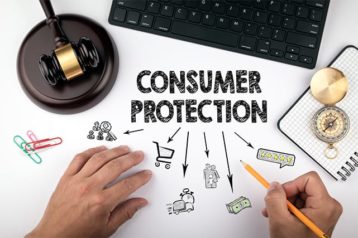
U.S. nationals in Maryland also have data privacy laws ensuring their online privacy and overseeing what businesses do with their personal information. Maryland’s Senate Bill 0613 mandates businesses to disclose to a certain extent what they do with consumers’ data. The law also used “probabilistic identifiers” to categorize personal information.
Maryland’s law is somewhat different from others when it comes to third-party usage of personal information. While other laws state that businesses should only disclose the information they sell to third parties, the Maryland bill added both sold and shared information. Also, when it comes to children, the law prohibits any kind of information-sharing arrangement with third parties.
Hawaii Consumer Privacy Protection Act
The Hawaii Senate Bill 418 also offers lots of protections and rights to ensure online privacy for Americans in Hawaii. The Hawaii Consumer Privacy Protection Act extends its reach to every website that conducts business from any country where Hawaii citizens visit.
This is important:
So, any website that violates the demands or mandates of the Act, such as protecting consumers’ data shared online, will face legal action.
Data Privacy Rights for US Citizens
Based on both the old laws and new ones, some of the privacy rights U.S. citizens have to protect their online privacy includes:
U.S. citizens have the right to be notified of how their data would be used.
They also have the right to make “data subject requests” to get copies of the information from businesses.
Consumers can change inaccurate information about themselves by requesting it from businesses.
Data subjects can ask businesses to erase any of their personal information they want to keep private or away from the internet.
Data subjects reserve the right to stop businesses from processing their data, even if it’s in their database.
A data subject has the right to object to how a company wants to use their personal information. A consumer can decline to use their information for sales, marketing or other purposes not related to services.
How Does the Internet Affect Privacy?
We can all agree that the internet is simplifying many aspects of human existence. It’s now possible to connect with millions of people worldwide, make new friends, make money online and even work from home.
While all of these are positive outcomes, the internet is also exposing people to many dangers and exploits. This is why online privacy issues seem to be of immense concern to internet users. Even though some individuals contribute to endangering their online privacy, there’re still some factors at play.
Some of the factors mitigating against online privacy include:
Social Media Activities

This is one of the biggest challenges of online privacy. Millions of people use social media platforms on the internet. It may shock you to know that one individual may be operating more than five social media accounts. While this not bad, it encourages over-sharing of personal information.
Some people throw caution to the wind when sharing every detail of their lives on these platforms. This is why an online miscreant can gather enough information about someone for a doxing attack. All they have to do is to pick crumbs of information about the target from multiple social media platforms, and that’s it.
Warning:
So, anyone who wants to protect their privacy online should be wary of social media sites. Mind what you post about yourself, and never forget that your internet friends are complete strangers. Any of them could be out to compromise your safety without informing you first.
IP Address Tracking
Many websites track the IP (Internet Protocol) addresses of their users. These companies will then match accumulated data to associate an address, name and other relevant information to the IP address. This is another way the internet is affecting online privacy. Anytime you visit a website, they’ll note your IP address and keep records until they can profile you.
HTTP Cookies
This is a cookie that enables quick access to web features or access to a particular website. It is often stored in your computer by your visit websites to allow you to open sites faster.
One of the most popular cookies is the tracking cookies Google uses for its analytics.
Websites now ask for permissions to embed tracking cookies, but sometimes, we grant it without checking the implications. There are many types of cookies serving diverse purposes. But while companies mainly use them for ads, cybercriminals use them for gathering data illegally.
Online Photographs
One of the risks of posting photographs online is that cybercriminals can use them to get your address. Many people who post street photographs or documentary photographs often expose their subjects unknowingly. People who appear in some of those photographs may not even be aware of it. Before they know it, they’re already exposed to the internet.
Search Engines

Google search engines track users’ searches. The claim by these companies is that they need the user’s information to provide better services to them. Unfortunately, not all web browsers are keen on protecting the privacy of users. Since the search engines have the right to retain users’ information, the operators can use it in any way they want.
For instance, Google and Yahoo have the right to retain information for some time. Even if their privacy policy explains what they use it for, it still means that your online privacy is not guaranteed.
Medical Applications
Modern medicine uses different kinds of medical apps to optimize processes. Each of these apps usually demands users’ personal information to ensure a personalized experience. After providing your personally identifiable information, the apps store them for the period you’re using them. While many of the companies have privacy policies in place, others don’t uphold them.
Internet Service Providers (ISP)

Here’s another risk against online privacy. Every internet user must use an ISP to access the internet. Whether you like it or not, every data that passes between you and the internet goes through your ISP network.
Unfortunately, many ISPs are dubious in the sense that they can breach your information. Also, if they’re not adequately secured, a hacker could exploit their vulnerabilities to access your PII.
Here are some other ways the internet is affecting online privacy:
- Deice fingerprinting
- Third-party requests
- Big data
- HTML5
- Cross-device tracking
- Phishing
- Pharming
- Malware
- Social engineering
- Weak passwords
- Proxy servers
- WebRTC
- Outdated software
How to Protect Your Online Privacy
There’s no one-size-fits-all solution to protecting your privacy and security online. Rather, adopting a mix of habits and best practices, and iterating on them over time, is a solid strategy.
Here are some of the actions you can take:
- Use privacy-focused web browsers and search engines that won’t log your data, such as Brave, Qwant, DuckDuckGo and Searx.
- Update software regularly and avoid using out-of-date versions.
- Always read privacy policies from the companies you use online.
- Check to see which security protocols organizations use to protect users’ information before you do business with them.
- Don’t sign up for every subscription list; choose the safe ones only.
- Use strong and unique passwords for every account you keep online. You can also update them from time to time.
- Disable cookies from your browsing history to avoid tracking.
- Check if your state has laws that protect your online privacy.
Conclusion
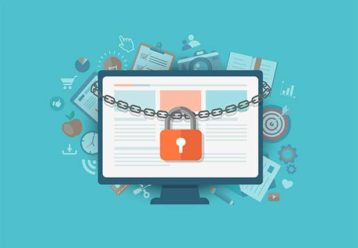
Internet privacy is a huge concern to many people in the U.S. and across the globe. Fortunately, many states have risen to the challenge and are now working towards a safer online experience for their citizens. Now, there are laws protecting the privacy rights of people, even on the internet.
However, online privacy is still the responsibility of everyone. While the government establishes laws to protect the privacy rights of internet users, individuals should also stand up to the challenge by taking proactive actions to remain safe online. The first step is to limit the data they share online, and the second is to safeguard the information they share by using strong passwords, VPNs and other security protocols.
All of these measures will help to reduce privacy issues.

